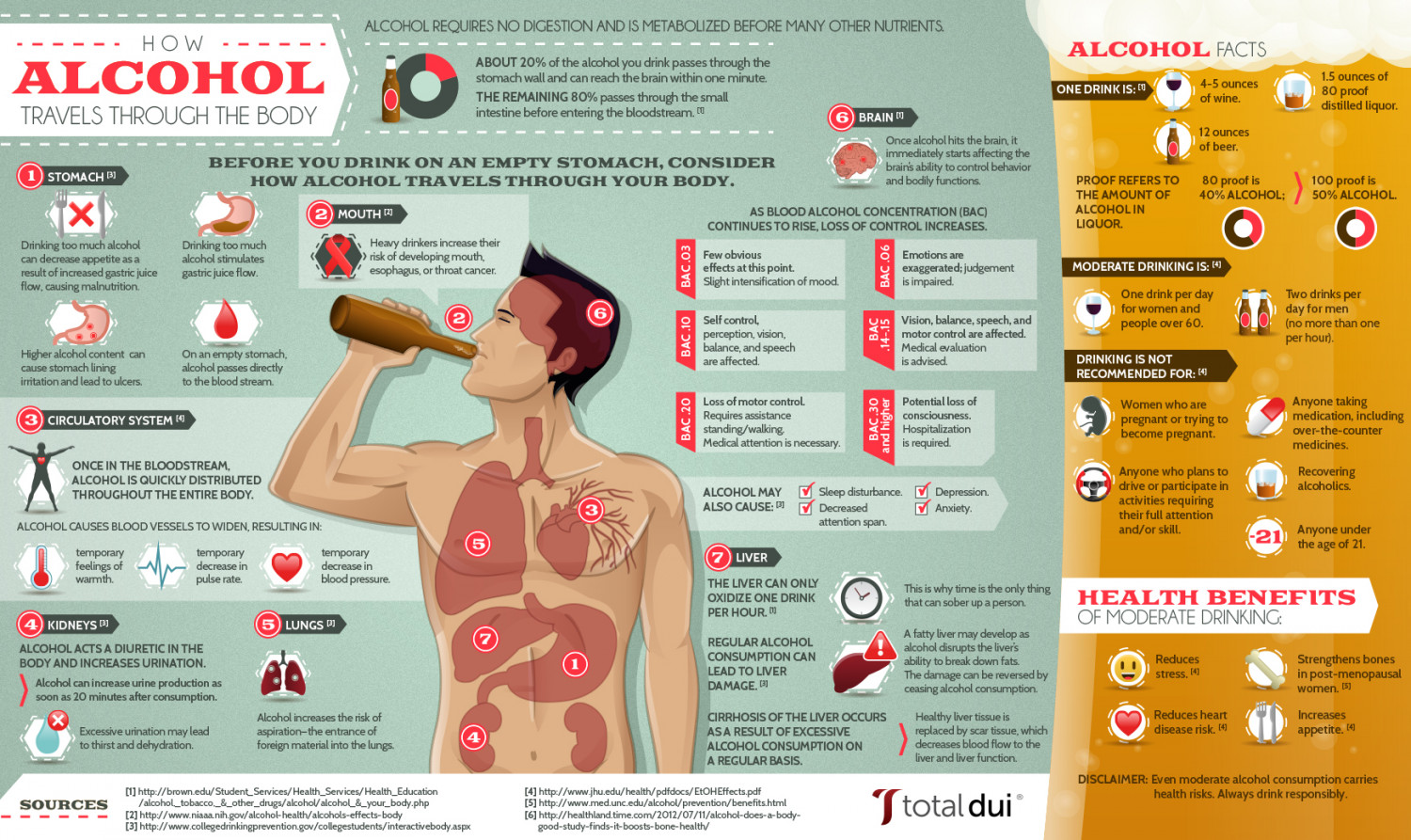Alcohol and drug use, for most, results in a numbing effect. An effect that addicts seek out. Alcoholism and drug addiction have the potential to ruin your life in many ways, and one of the major areas where it takes a severe toll is on your physical health. The effects of heavy drinking and drug use can ravage your liver, heart, and brain, and raise your risk for several diseases, not to mention the dramatic impact it can have on your mental health. The beautiful thing about making the choice to stop using is that it can completely transform your health—you will be amazed by what sobriety does to your body.
What Does Sobriety Do to Your Body Immediately After You Stop Using?
Once you make the decision to quit using alcohol and drugs, you should be prepared for the transition your body will go through. As your body detoxes from the drugs and alcohol, it can be a shock, not only physically but mentally as well, to suddenly be without a substance with which your body has functioned with for so long. If you have been abusing substances for a considerable amount of time, you may experience withdrawal.
Withdrawal is your body responding to this sudden change. This change can result in multiple signs. You may feel sweaty and uncontrollably hot because your body temperature has increased. Your body may start shaking or tremoring without warning. Your energy will dip, while your craving for alcohol may intensify. All these symptoms can also be accompanied by mood swings. You may veer from irritability to anger and back again in a very short period of time. If your alcoholism is severe, you may even experience hallucinations or feelings of delirium. Because these symptoms can be hard to manage on your own, you should seek out a professional treatment program that can oversee you during this critical time. Some additional symptoms may include:
- Anxiety
- Shaky hands
- Headache
- Nausea
- Vomiting
- Insomnia
- Sweating
These symptoms can sound very frightening, but it’s important to remember that the withdrawal period is only temporary—you can start to feel better very soon.
Sobriety and Your Body Post-Detox
Once you pass through the withdrawal stage, the weeks and months ahead will likely bring significant change to your body—for the better.
Perhaps the most important alteration to your physical health will be a marked improvement in your sleep. Substance abuse can cause insomnia and other sleep issues, and research shows that if you don’t get enough sleep it can wreak havoc with your health. Once you body is free from substances, you will slowly start to sleep better, and along with that will come more energy, improved mental clarity and brain function, regulated blood sugar, and a brighter mood. This is where sobriety starts to get good!
Sleep is just one of the changes to your body that you may notice. Your skin may look better—the effects drugs and alcohol can be dehydrating. When your skin isn’t getting the moisture it needs, it can appear wrinkled and dry. You also may feel stronger and less susceptible to cold and flu germs because your immune system—which had been weakened by your heavy substance abuse—will rebound and better fight off illness. You may also notice a difference in how your clothes fit. Your metabolism, freed from the grip of alcohol abuse, can rev up again. Also, eliminating several alcoholic drinks from your daily diet means you are also eliminating what could be several hundred calories. As long as you are eating a healthy diet and not substituting food for your alcohol addiction, you can lose weight.
Sobriety And Your Body Long-Term
If you keep up with sobriety, and healthy habits such as eating well, exercising, and getting adequate sleep, you may feel and look like a completely different person when you are several years into your recovery. You may look fitter from the weight loss you experienced after you quit drinking, and more energy and more free time can enable you to get more physical activity. You will look more alert because you are no longer in a drug-induced haze.
You can also have significant changes take place that aren’t as readily noticeable in your outward appearance. Your internal organs were definitely affected by overconsumption of alcohol. For instance, all areas of your brain are affected by your substance use, including the gray matter, which is the brain tissue where information is processed. Drug abuse can cause a loss of volume with your gray matter, but one study indicates that volume can return in some regions of the brain after you stop drinking and get sober.
As most people know, the liver is another organ that sustains severe damage from drugs and alcohol. The liver has the task of eliminating drugs from your bloodstream. But when you use too much, your liver can’t keep up and remove the substances, which has a toxic impact on the organ. Your liver can also develop scar tissue from the damage caused by alcohol and drug abuse. The only way to stop the damage is to stop using. If you make the decision to get sober earlier in your addiction, you may have a better chance of seeing your liver function return to normal or near-normal levels.
After sobriety, your heart function will also likely have improved. Alcohol and drug consumption has a correlation with an increase in triglycerides, the type of fats that can contribute to heart disease risk. (Weight gain from too much alcohol can increase that risk even more.) Drug abuse can also cause damage to the heart’s muscles. After you stop using and are sober for several years, your heart disease risk can decrease. Not to mention the stress you remove from this organ caused by the use of amphetamines. Another advantage to sobriety is the reduction of the chance of getting certain kinds of cancers, such as in the breast, mouth, or liver.

Within the report on Carcinogens, the National Toxicology Program of the US Department of Health and Human services list that consumption of alcoholic beverages has been shown to increase the risk of such cancers:
- Pharynx cancer
- Esophagus cancer
- Mouth cancer
- Liver disease/ cancer
- Breast cancer
- Colon Cancer
- Pancreatic cancer
- Prostate cancer
- Larynx cancer
While there are several factors we cannot control when it comes to cancer development, such as genetics, we can reduce the chances. Sobriety will positively change your body’s internal functions, allowing your vital organs to rid the body of all toxins and replenish with nutrients and result in weight loss, resulting in an overall general well-being improvement.

All these positive changes to your physical health can make you feel pretty good mentally, too. If you used alcohol as a way to cope with intense emotional issues, it’s important to have replaced it with healthier strategies, such as meditation, relaxation techniques, exercise, an encouraging support group, or therapy. With these tools, you will be better equipped to handle tough times without fear of falling into depression or relapsing. They also have the benefit of boosting your mood and giving you ways to lower the impact stress can have on your mind. Plus, because you are sober, you are more present and can see more clearly the gifts in your life you can be grateful for. You have the capability to lead a more mindful, contented life.
Drug and alcohol withdrawal can be one of the most challenging and stressful situations you will most likely deal with. It will not be an easy process, but once you reach the other side and can successfully live a life of sobriety, you will thank yourself for sticking to it – ensure you take pride in how far you have already come.
If you have any further questions regarding the how sobriety effects your body, San Diego Sober Living is here to help. Please contact us today!

